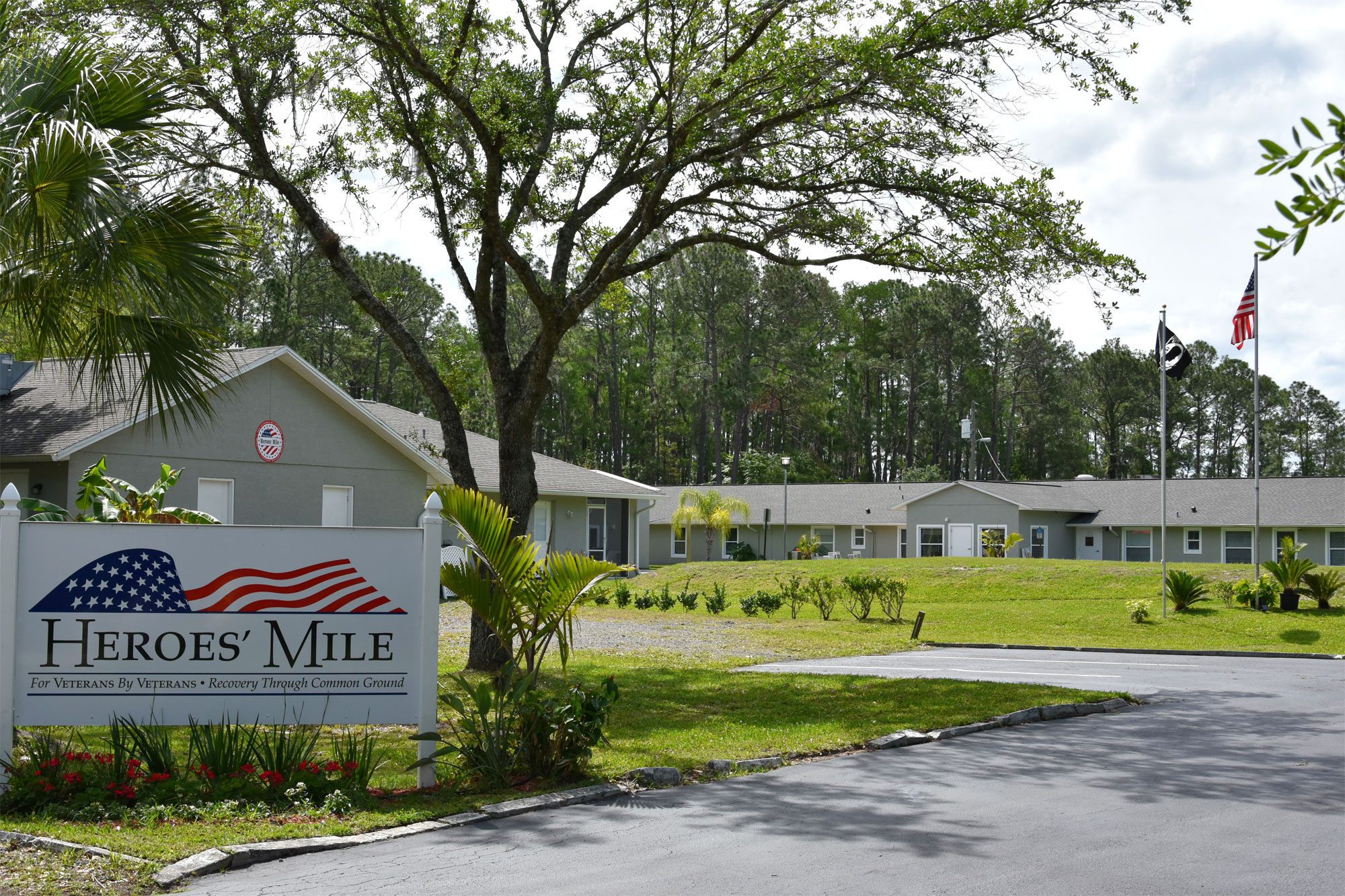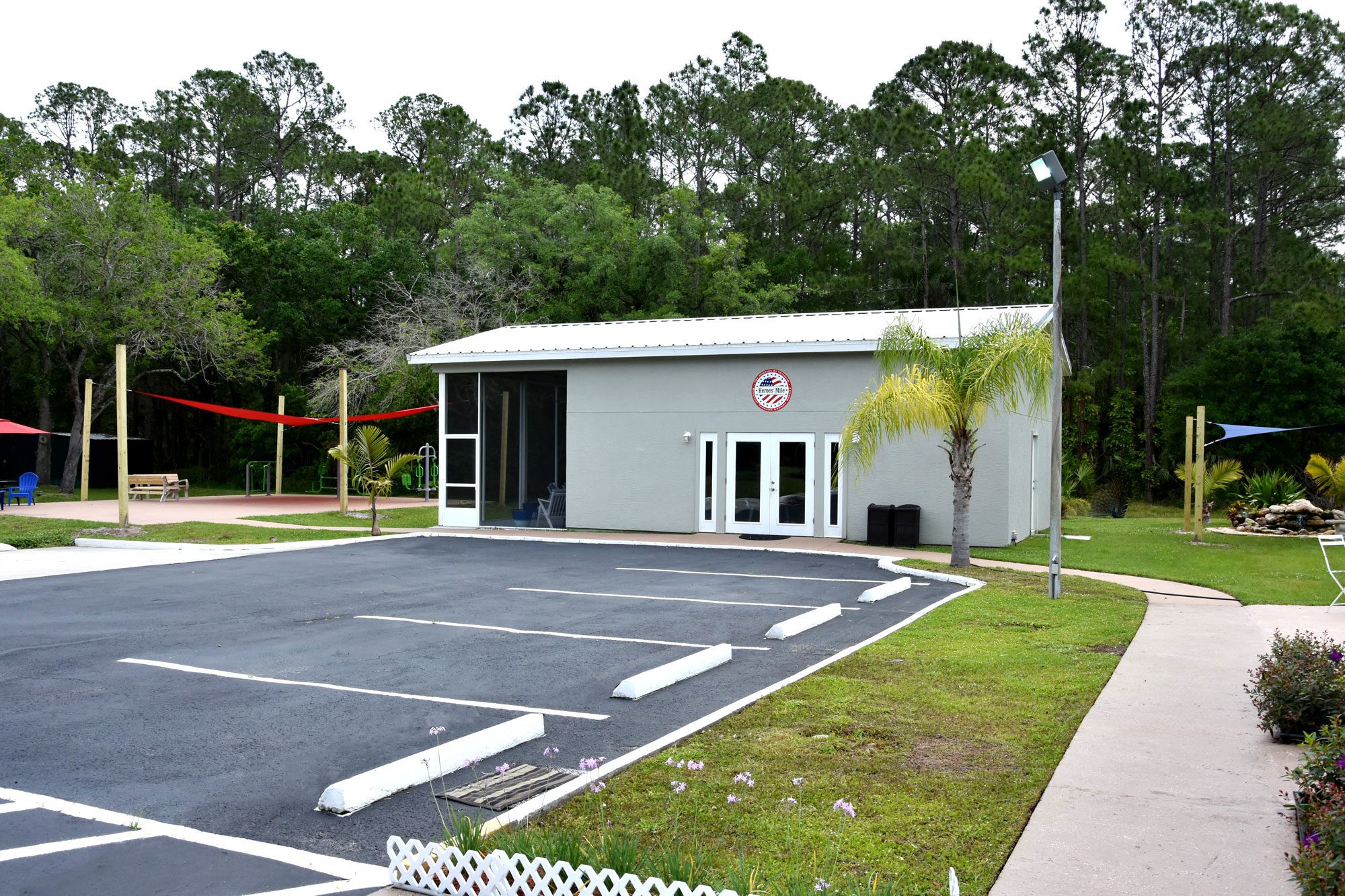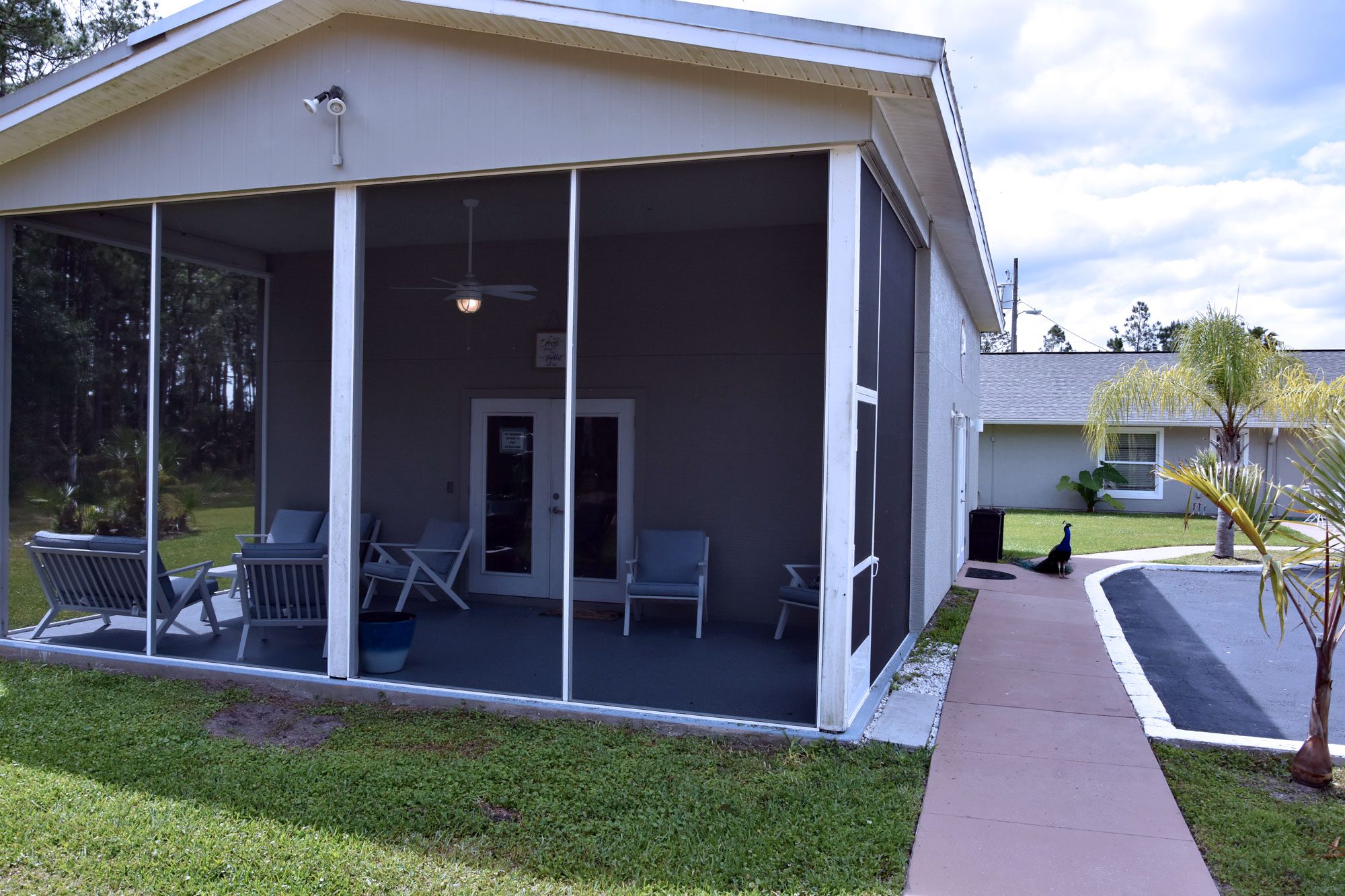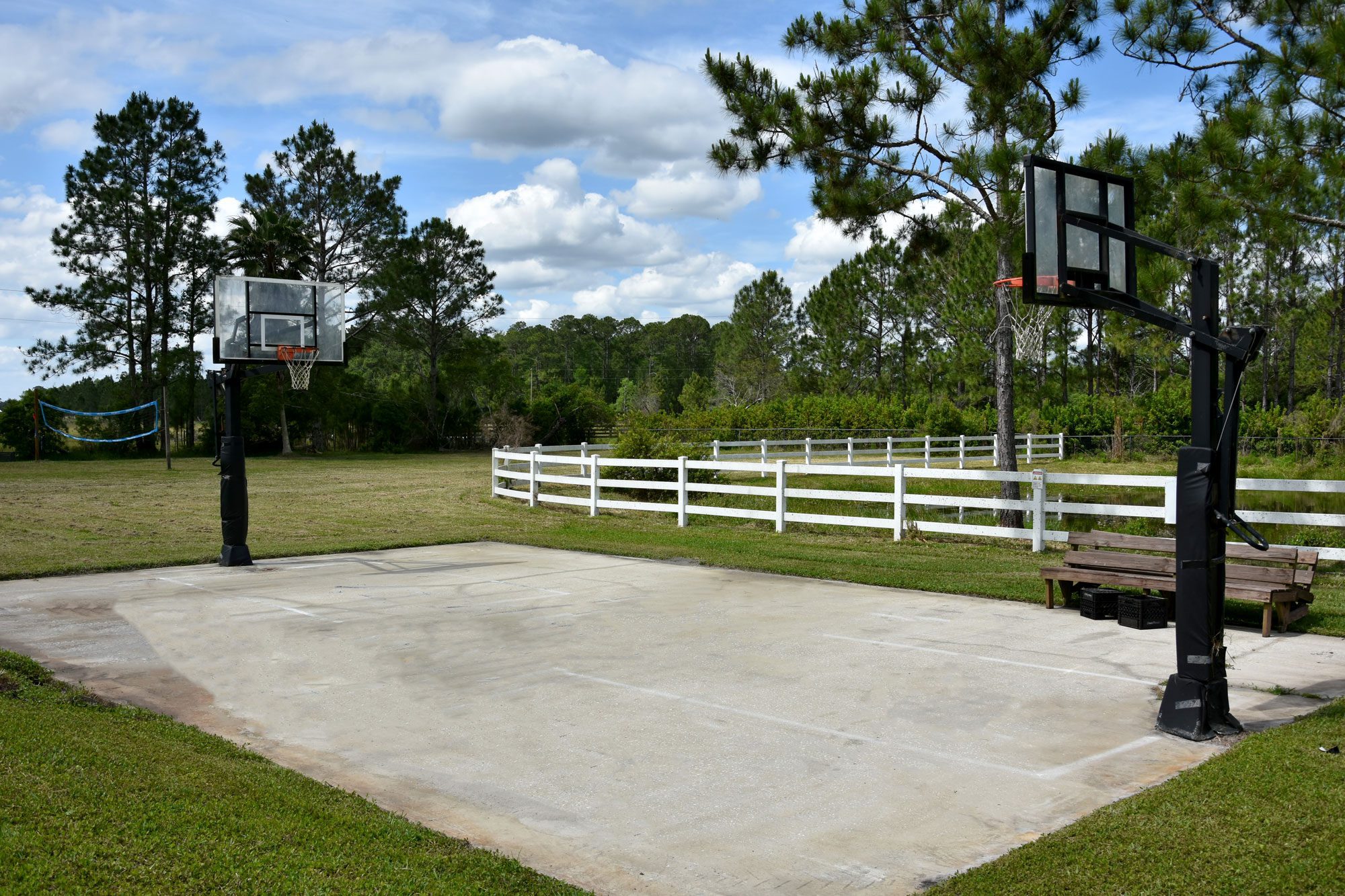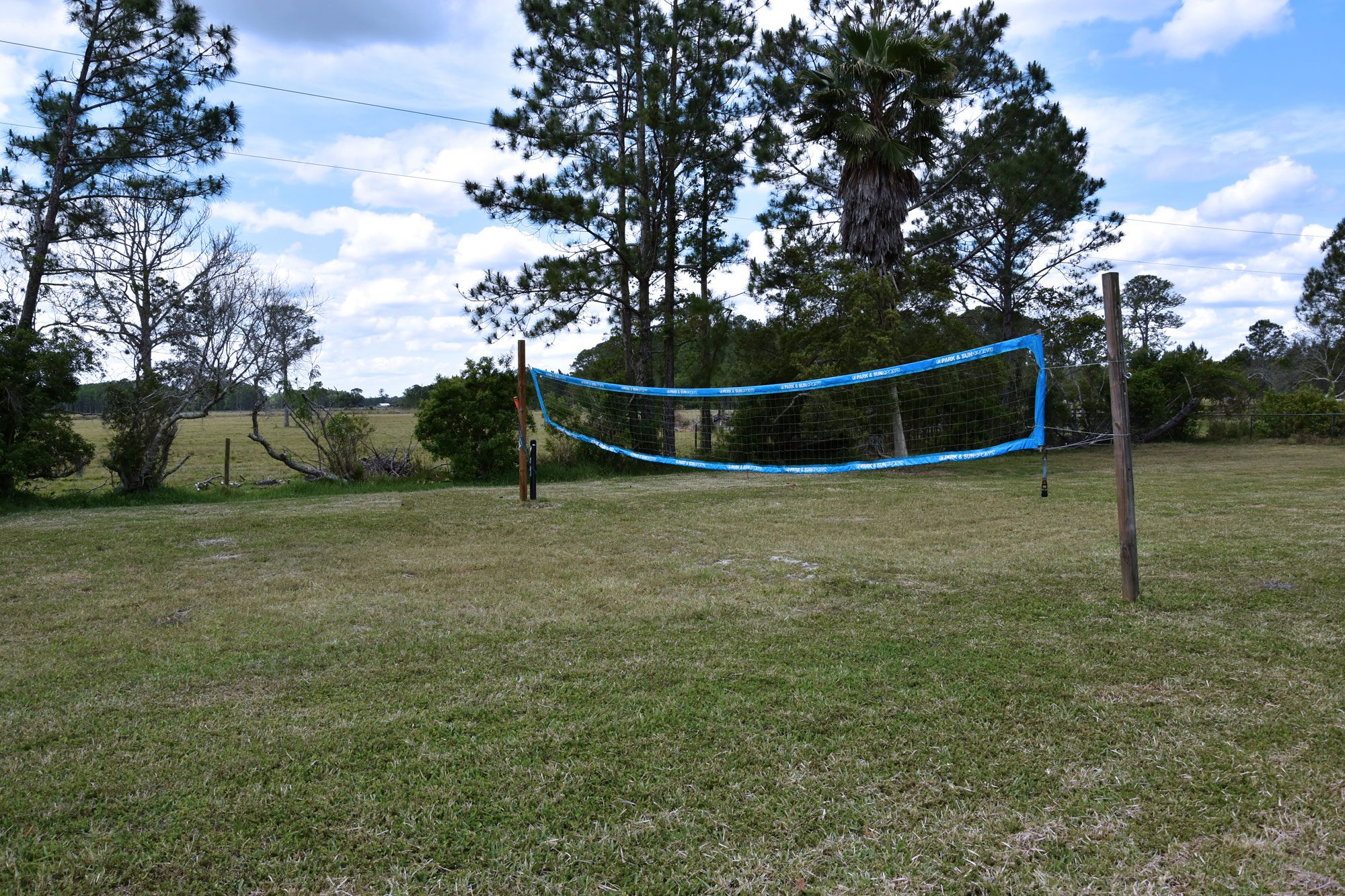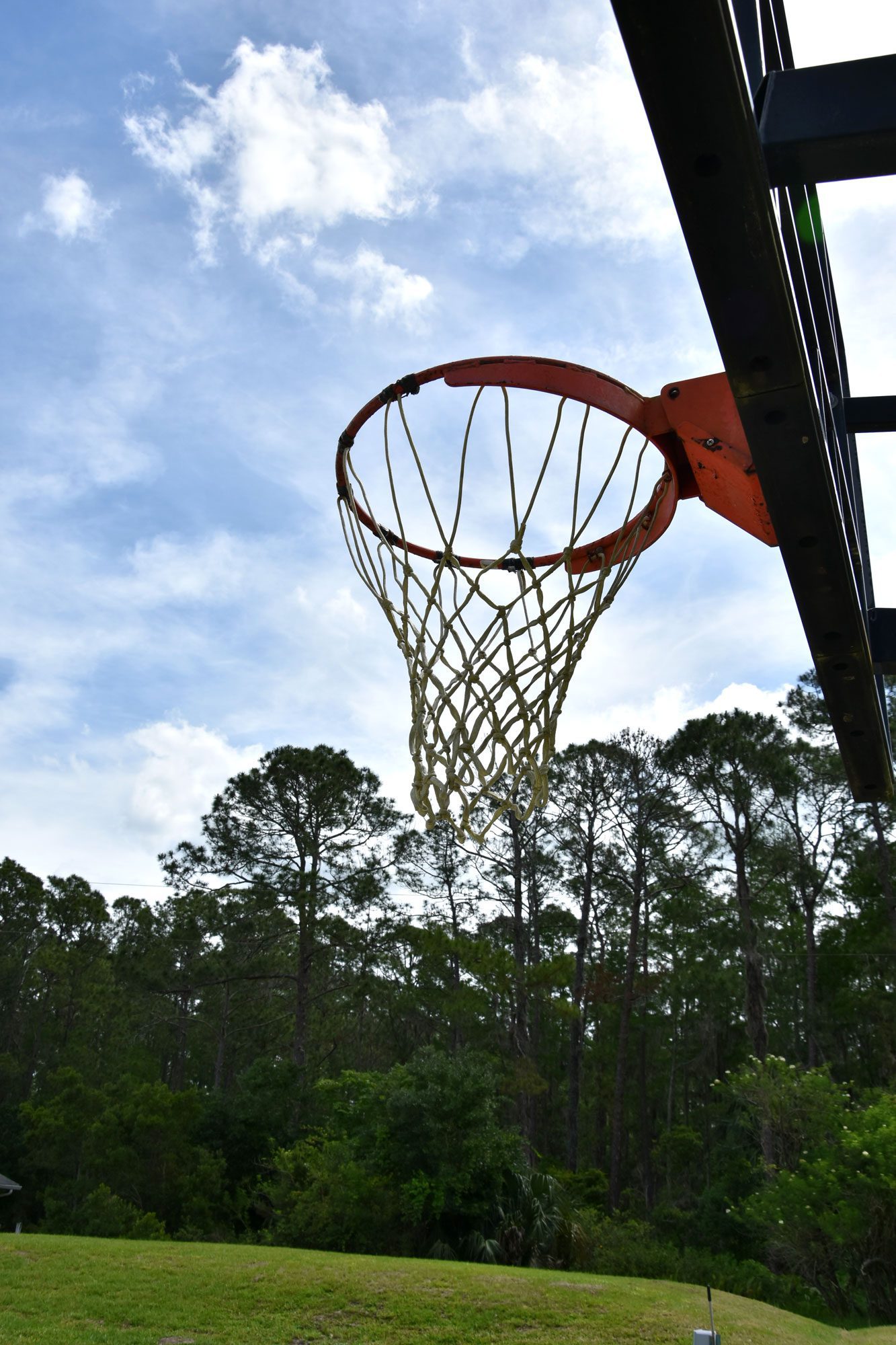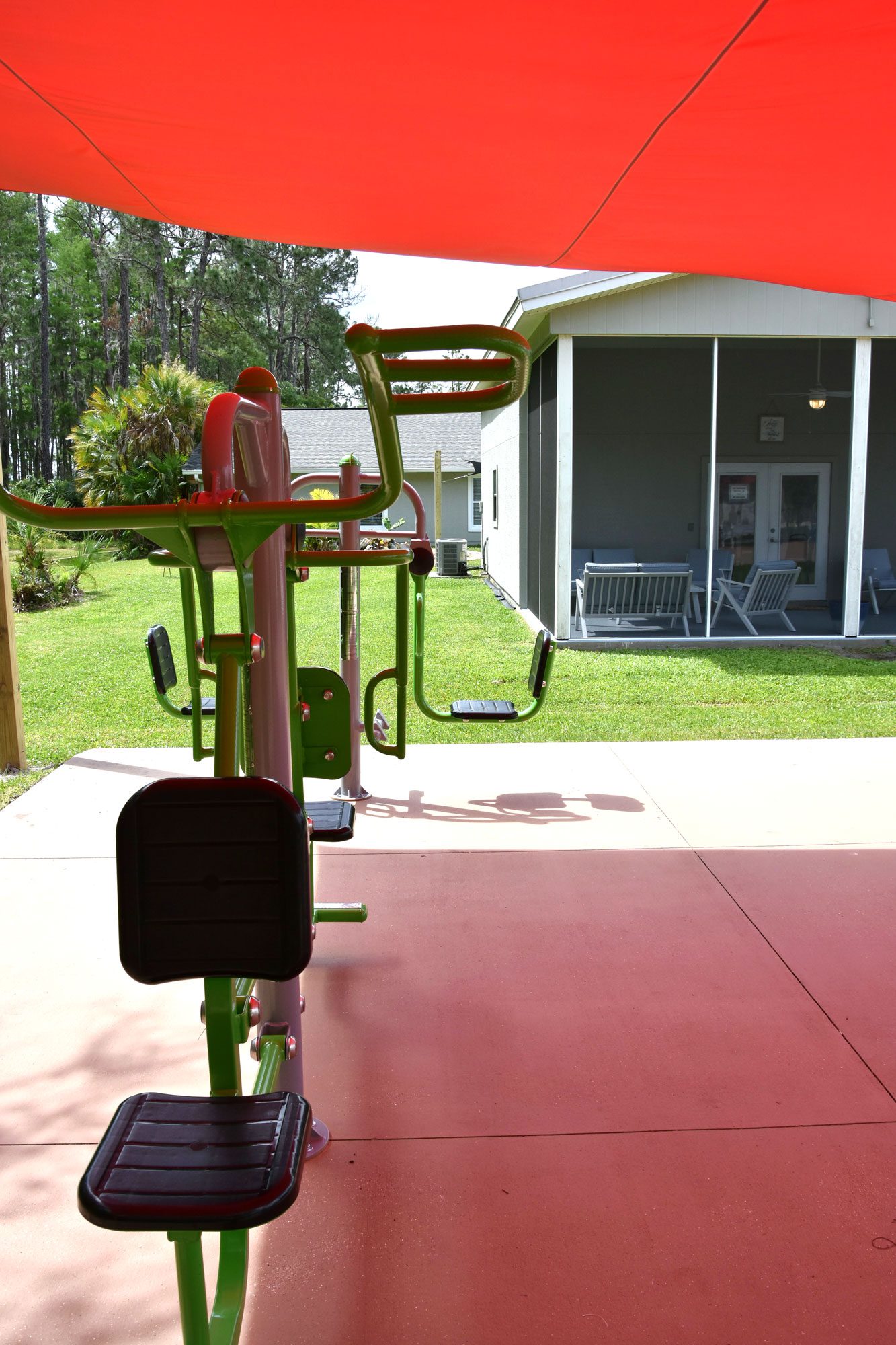HEROES’ MILE FACILITY TOUR
A virtual tour of Heroes’ Mile Veteran’s Recovery Center in DeLand Florida
For Veterans By Veterans Alcohol Rehab Facility
Located just outside of DeLand, Fla., Heroes’ Mile offers a full range of inpatient and outpatient programs for veterans struggling with alcohol or substance abuse and psychological challenges related to their military service. If you’re a veteran and experiencing problems with addiction, military sexual trauma (MST) or post-traumatic stress (PTS), our veteran rehabilitation facility can help put you on the path to recovery.
You won’t find cold, institutional military barracks here. Instead, our patient-oriented facility offers a warm, inviting, and comfortable environment where veterans and service dogs are always welcome. On our 10 acres of secluded land, you can enjoy numerous recreational and athletic activities that will provide camaraderie, spiritual renewal and the opportunity to challenge yourself or simply partake in nature. Activities such as art therapy, equine therapy, and sports activities can help you work through recovery and into a new, healthy way of living.
Conveniently located near U.S. Route 92, our center also offers transitional living arrangements, an outdoor space with exercise equipment, and a small, peaceful garden and rock fountain for veterans who need a quiet moment. Heroes’ Mile provides numerous indoor and outdoor common areas where veterans can gather, chat, learn, and grow.
Why Choose Heroes’ Mile for Rehab Services?
At Heroes’ Mile, we provide rehab for veterans through unique combinations of various therapies. Throughout the course of each day, our patients receive individual counseling with a therapist, addressing:
Are you or a loved one in need of help?
- Substance use disorder
- Post-traumatic stress disorder
- Military sexual trauma
These treatment programs include clinical groups led by a resident assistant (RA); psychoeducational groups using evidence-based, experiential therapies; and nursing groups that discuss topics related to substance use disorder and invisible wounds of war.
Additionally, our comprehensive programming includes nutritional education, spiritual development, marriage and family counseling, aftercare planning, and more. Our mission is to guide individuals from self-defeating thinking and behaviors to a higher level of emotional, social and moral consciousness. Our compassionate staff goes the extra mile to provide veterans with an extensive transitional care program that is personalized to ensure a smooth transition back into society.
We understand that the first step is often the hardest part of recovery. When you come to us, we give you all the support you need to move forward and regain control of your life.
Ready to begin your recovery? Contact Heroes’ Mile at 1-888-VET-NOW2 or complete our confidential form today.
Benefits of Our Veteran Drug Rehab Facility
Heroes’ Mile is committed to the long-term recovery and sobriety of every individual we serve. Military service veterans enjoy the following advantages in our DeLand facility:
- Secluded nature — Progress on a path to recovery in a tropical environment, surrounded by sunshine and palm trees.
- Privacy — Our veterans alcohol rehab center takes you away from distractions and limits your access to triggers that can encourage relapse. Enjoy complete confidentiality at Heroes’ Mile as we provide the support you need to move toward healing.
- Support from fellow veterans — Heroes’ Mile offers therapies and services in a safe, structured environment facilitated by people who have shared in the experience of war.
- Exceptional care — Our full-time medical, therapy and nursing staffs are available to guide you through every step of your alcohol rehab, substance abuse, PTS or MST program.
Are you or a loved one in need of help?

